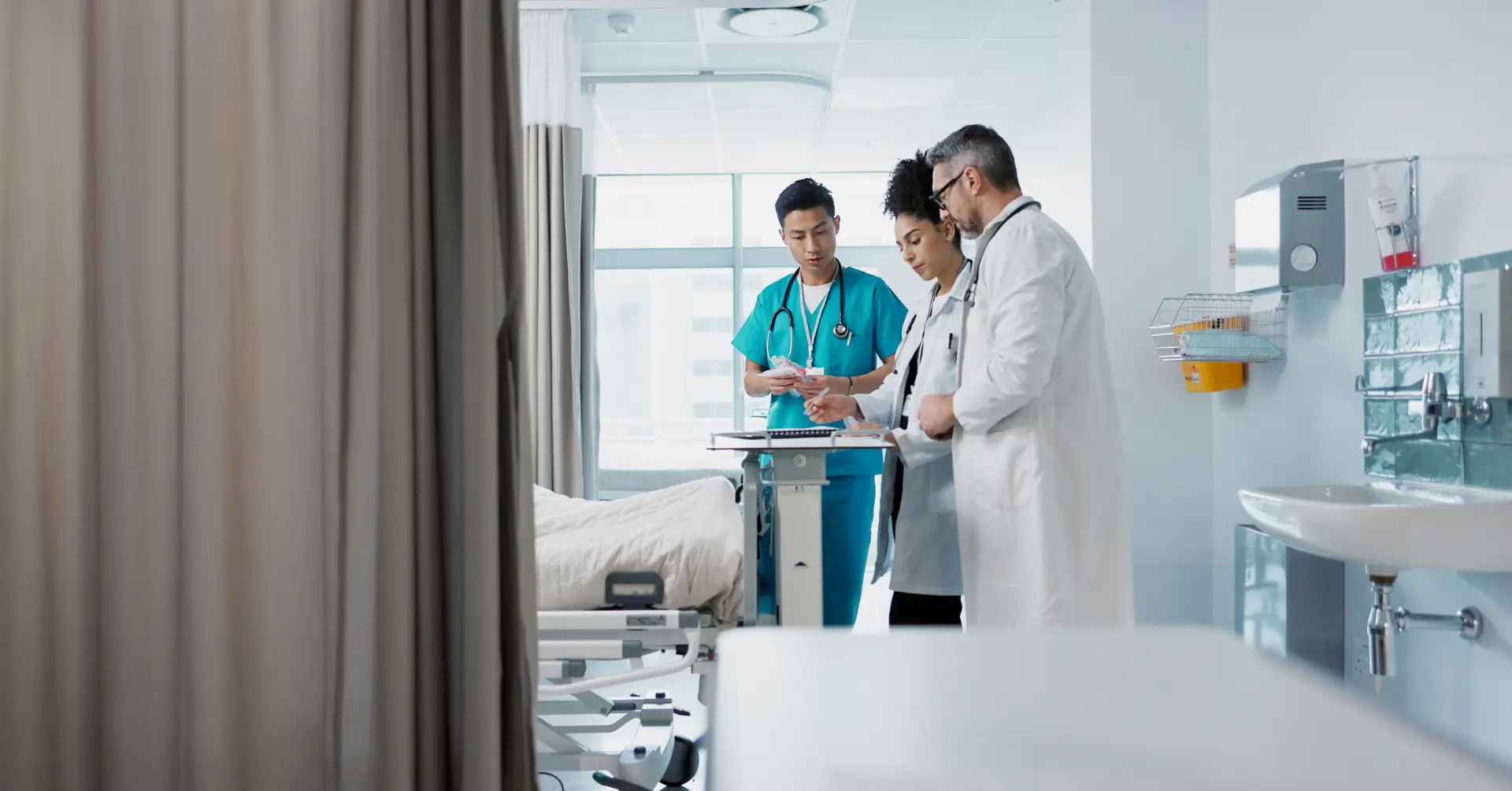Transitioning from the protected environment of residency training to the “real world” of post-residency practice presents numerous challenges for newly minted physicians.
While students learn a great deal about practicing medicine during residency, their first year as an attending is the most instructive as it pertains to the business of medicine and its application in day-to-day life.
The business of medicine
“The business side of medicine” is a phrase most residents hear in training, but few programs prepare young physicians to navigate employment after residency, the AMA says.
Attesting to the truth of that statement, Dr. Reza Mirali Akbari, in an article for Op-Med, a medical practice periodical wrote, “We give residents their certificates and wish them well in their practices, all the while ignoring the fact that they are minimally prepared for the very basics of practice management and survival.”
Getting educated in the business of medicine involves four areas: medical liability and malpractice, time management, seeking feedback, and lifelong learning.
Medical liability and malpractice
Understanding the medical liability system can be daunting for young physicians just entering their medical practice. Still, it pays to become familiar with the many implications to limit exposure and reduce risk.
Medical malpractice is a legal cause of action that occurs when a medical or healthcare professional, through a negligent act or omission, deviates from standards in their profession, resulting in injury to a patient. The negligence might arise from errors in diagnosis, treatment, aftercare, or health management.
Medical malpractice insurance is a specialized type of professional liability insurance that provides coverage to physicians and other medical professionals for liability arising from disputed services that result in a patient’s injury or death.
Aspects of medical malpractice insurance you want to familiarize yourself with include but are not limited to:
- Policy types and coverages;
- How premiums are set;
- Whether the policy matches your practice;
- Who pays for defense costs.
Time management
Time management is an essential skill new physicians must master. However, its importance is not routinely emphasized in undergraduate or graduate medical education curricula. Such oversight often results in the development of poor time-management practices early in training. Improving time-management practices can lead to decreased stress, increased productivity, and enhanced well-being for physicians.
Feedback
Management expert and author Ken Blanchard says, “Feedback is the breakfast of champions.” That’s because appropriate feedback is a significant contributor in helping doctors develop competence and confidence at all stages of their professional career, particularly early on.
While you want to challenge yourself, it’s important to seek feedback from colleagues, supervisors, mentors, and patients. Division Medical Officer at SCP Health, Brian Dawson, MD, states, “As you transition from the training environment to the attending role, it is important to have humility and remember that not only can we learn from any member of the team, but that listening to others can and will save lives.”
It’s obvious why you would seek feedback from your colleagues, supervisors, and mentors, but it is just as important to listen to what your patients have to say. Patient feedback will help you improve patient experience and learn what they think about everything from appointment scheduling and wait time to your bedside manner, thoroughness, communication skills, and professionalism. You may also understand how you measure up to the competition, other practices within your health system, or even fellow doctors.
Feedback from each quadrant helps you improve performance, level-set on skills, build stronger relationships with patients and staff, and enhance your credibility with colleagues.
Lifelong learning
Lifelong learning is a process of continuously scrutinizing and building on your practice to be the best doctor possible.
However, according to AMA, too many practicing physicians take lessons learned during their training years and apply them, without significant deviation, throughout their decades-long careers in medicine. When that happens, both patients and physicians are worse off.
You had learning forced on you during residency. Now, as a practicing physician, the burden is on you to continue learning. So, plan for time to read medical journals and periodicals. Listen to podcasts. Attend medical seminars and conferences. Keep up with hospital policies and government regulations.
Also, stay humble, and ask for help when you need it. You learned a lot during residency, but you don’t know everything. Getting support from experienced colleagues helps you improve your abilities and gain respect from your peers.
As an attending, you now have a license to learn. Make it a lifelong habit.
Day to day life
After focusing on medical school and residency for so long, it can be hard to come out of that tunnel vision and find a sustainable and balanced lifestyle.
Focus shifts
Your focus as a student was primarily internal. Lectures, rounds, articles, assignments, exams, and more occupied most of your time. Now, you must shift your attention to your patients, practice, and employer, in order to provide optimal care to your patients.
“In the training environment, much of your focus is developing yourself to become the best physician possible for your patients, now and in the future. As you transition into the professional environment, you have to remember that it’s not about you anymore, and if you look deeper, you will also realize it never really was,” advises Dr. Dawson. “Our work, our calling as physicians, is in service to our patients, our families, and to the teams that help us to provide that care.”
One of the most important things for a physician to understand is who the constituents of their practices are. First and foremost, we serve the patient, but this also includes the nursing staff and ancillary staff, medical staff, and C-suite. If you focus on treating everyone well, then you are approachable as clinicians. When physicians are approachable to patients and staff, then you provide better care to your patients.
However, this change in focus is just the beginning of what life looks like after residency.
The larger community
As a resident, your “community” consisted of fellow students, faculty, and the hospital where you studied. Now it’s time to look beyond those boundaries to the hospital community where you practice and the larger community where you live. Andrew Core, MD, Division Medical Officer at SCP Health says, “Establishing a relationship with the community is important and getting involved is key to understanding the population you serve at large, especially if it is different from where you completed your residency.” When you become involved and incorporate a little bit of community and enjoyment into your downtime, it can increase satisfaction during your work time.
But don’t just “enjoy” the community; embed yourself in it through active participation. That doesn’t have to be time-consuming, either. Pick out one or two activities you can commit to. These can include:
- Volunteering in a qualified free clinic;
- Working with local civic organizations;
- Assisting with charity benefits;
- Coaching youth sports teams;
- Helping with hospital-organized community events.
Avoiding burnout
In addition to your studies, you worked long hours and irregular shifts during residency, so you are all too familiar with the symptoms of burnout. Now, as a practicing physician, do everything you can to avoid it.
It’s not unusual to see new doctors burn out in their first year of post-residency. The learning curve when it comes to administrative work such as billing, and documentation is steep and overwhelming.
Advisory Board research found that the administrative burden of medicine is a leading driver of physician burnout. It offers the following explanation:
“Over the last several years, our experts have noticed a pattern emerging among physicians… Today’s physicians spend the vast majority of their time looking at screens—whether they are responding to messages in the patient portal, ordering tests, or refilling medications. And our research points to this rise in the administrative burden of medicine as the leading driver of physician burnout.”
Regardless of the form it takes, avoid burnout at all costs. One of the best ways is to maintain a healthy work-life balance, something more easily achieved with good time management and building a life outside of work.
Conclusion
In her essay “On Becoming an Attending,” family medicine practitioner Alison C. Shmerling, MD, described her experience of entering medical practice out of residency this way:
“I again find myself starting a new job. This time the job is not only learning how to be a great clinician. It’s also learning how to be a great researcher, teacher, mentor, friend, daughter, and wife. I’m not yet sure how I will prioritize and balance these roles. But I remind myself that each is one I have embraced before, with its own team, its own location, and its own culture.
“I remind myself that others before me have had similar struggles, and that without some discomfort one cannot grow. And as each of these new roles brings the same anticipation and nervous energy I’ve felt with each new beginning, I remember I can always approach them one month at a time. After all, that’s what I’ve been trained to do.”
As Dr. Shmerling’s testimony demonstrates, coming out of residency can be both exciting and intimidating. That’s where SCP’s Residency Resource Team can help.
Learn more about how SCP Health can help put you on a path to a great career in medicine.






